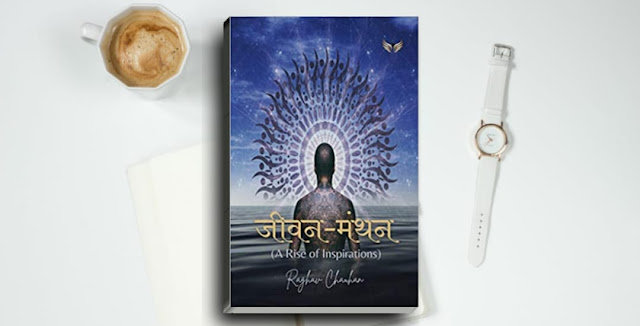Jeevan Manthan by Raghav Chauhan is a book of inspirational quotes on life and its allied aspects. The book is short and crisp to read as it sheds important lessons of life by quotes in both English and Hindi.
At the center of the book is LIFE. As the title suggests, the book is about life and how one can make it perfectly livable. The book is written by very young author and at such a tender age he is delivering life lessons and wisdom, seems like a mammoth task in itself.
The genre of the book is neither completely spiritual nor philosophical. It oscillates between many. At the forefront, in each quote, the book keeps teaching good and inspiring lessons which are hard to find in our everyday life motivator resources. In all of its essence, the book not only encourages having a good life but also inspired to be a good man in the tenure of life.
The book starts with a very ravishing yet thought-provoking quote: One should be self-reliant in Life, mastery in any task cannot be achieved by being dependent on others."
Similarly, there are lessons on competency while achieving dreams, how to refrain from greed, good friends, self-belief, satisfaction. The content in English and Hindi is highly readable and one does not feel bored because it is soothing and calming to the soul.
Before we conclude the review, we would like to share some more quotes from this promising book:
“Change is essential for life's progress. Change over time is an art of life because it is based on the law of world change.”
“In Life, the value of karma is not so much in its external form and external fruit as it is in the growth of man's inner divinity.”
Raghav is a master narrator, though this is not a fiction, but reads like one. His command over English and Hindi is superb; he has justified his stance as a budding author from India. The book appeals to both language readers, Hindi and English.
Buy the book from Amazon.

Comments
Post a Comment